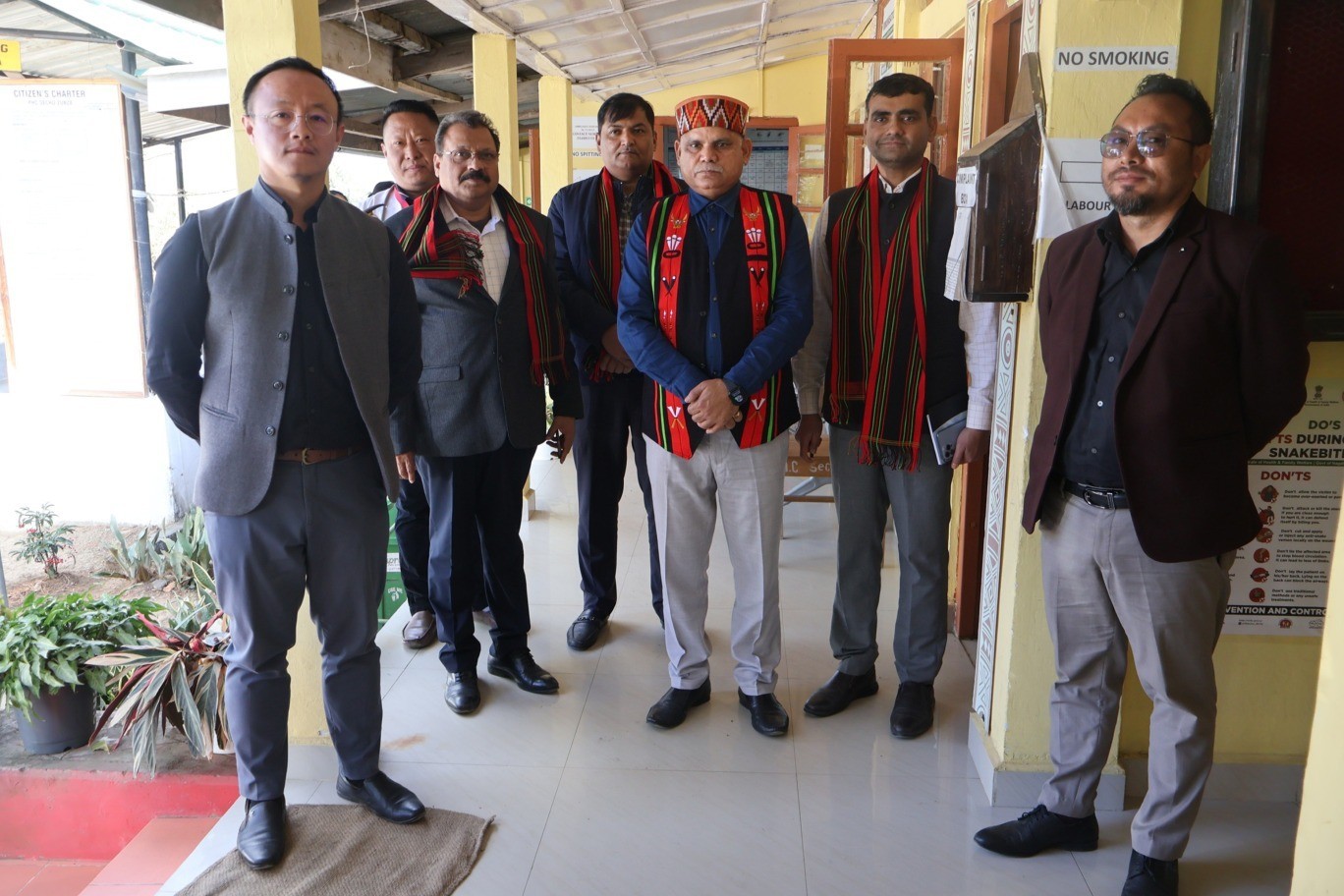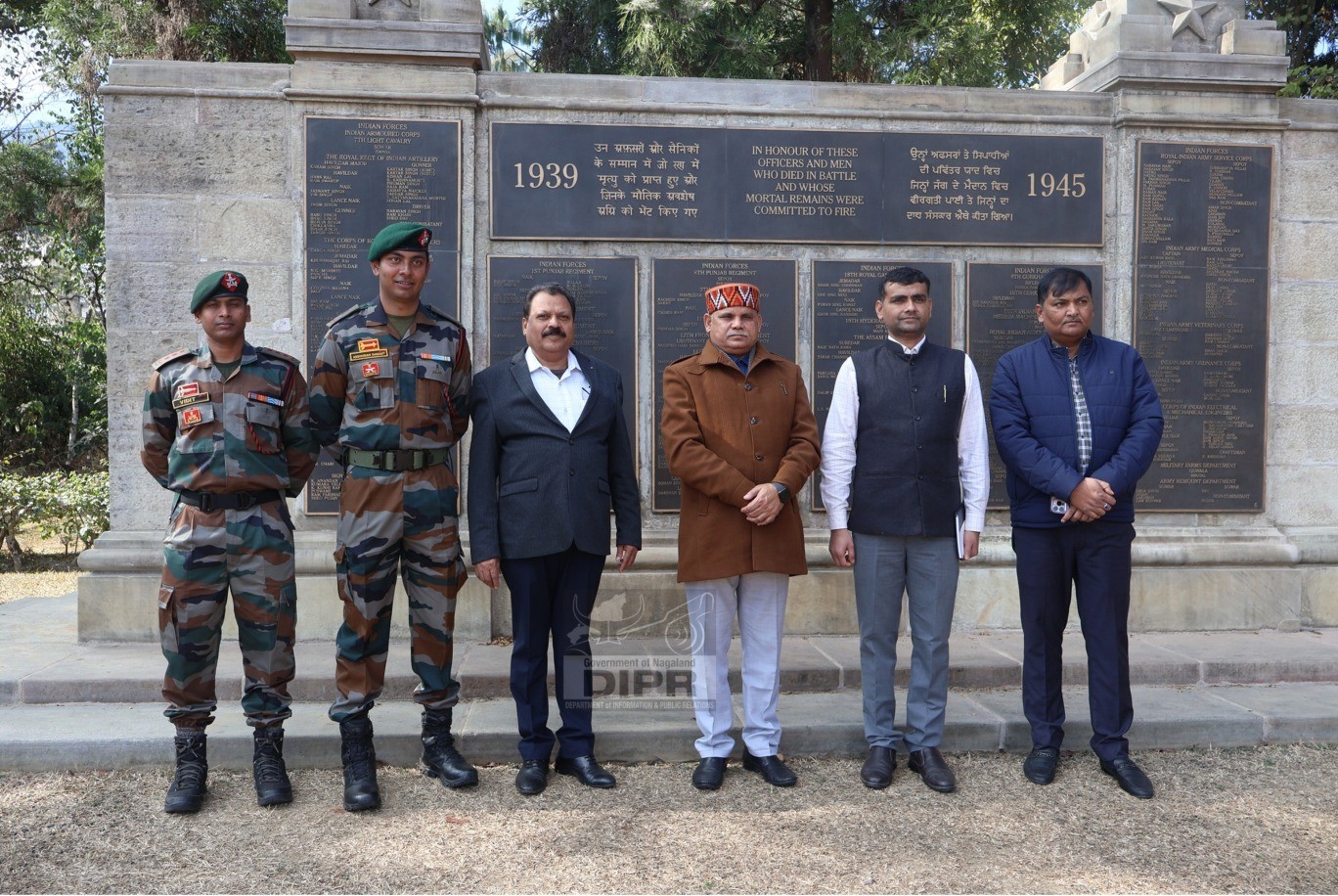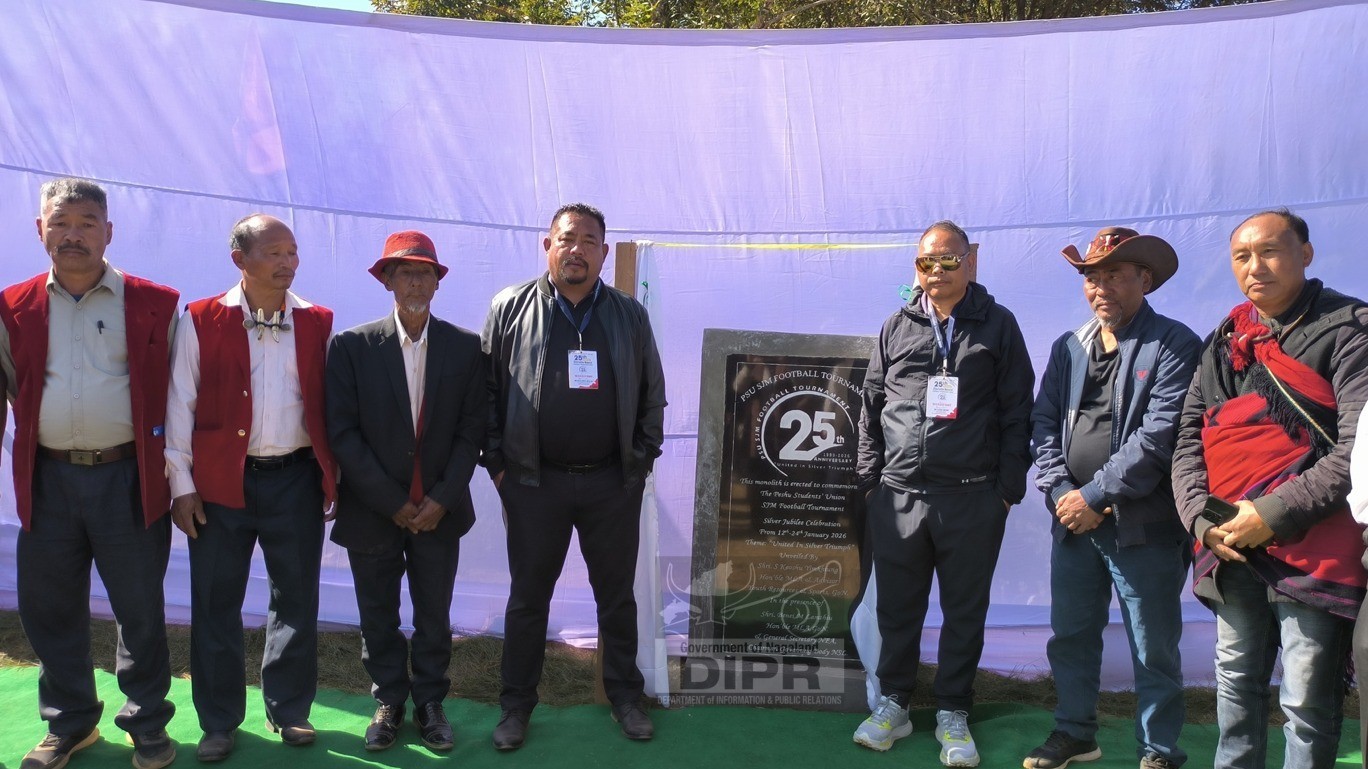The inaugural function of the Health Financing Forum for Cross-State Learning in the Northeast Region was held on October 7, 2025, at Zone Niathu by The Park, Dimapur. The two-day event (7&8th October, 2025) was jointly organized by the Government of Nagaland and the World Bank.
T.R. Zeliang, Deputy Chief Minister of Nagaland and Minister for Planning & Transformation and National Highway, graced the occasion as the Special Guest. In his address, he underscored the importance of financial reforms in ensuring accessible and equitable healthcare across the region. He stated that effective health financing was not only about mobilizing resources but also about using them efficiently to reach the last mile.
Zeliang emphasized that the forum served as a vital platform for policymakers, health professionals, and experts to exchange ideas and experiences that could help the region move towards universal health coverage. He said that health, being one of the most crucial components of human development, required a holistic approach that connected infrastructure, manpower, financing, and governance.
He acknowledged the World Bank’s long-standing partnership with Nagaland in strengthening the health sector through the Nagaland Health Project, which introduced the Result-Based Financing (RBF) model. He said that such initiatives had contributed significantly to improving accountability and performance in service delivery. Zeliang noted that through RBF, healthcare facilities were now being incentivized for achieving measurable outcomes, which had enhanced transparency and efficiency in financial management.
Highlighting the state government’s vision, Zeliang said that Nagaland was committed to creating a robust and resilient healthcare system capable of meeting emerging challenges such as demographic shifts, disease transitions, and the growing impacts of climate change. He urged all participating states to embrace innovation and to develop collaborative strategies that respond to the specific needs and realities of the North-eastern region.
He further pointed out that the Government of Nagaland was placing strong emphasis on preventive and primary healthcare while also strengthening referral systems and hospital management to ensure that no citizen was left behind. He called upon all stakeholders to work collectively in developing mechanisms that would reduce out-of-pocket expenditure, improve healthcare access, and build financial protection for vulnerable populations.
During the event, the Deputy Chief Minister released the FinHealth Assessment Report, which provides a detailed analysis of the health financing landscape and recommendations for reform in the region. He commended the World Bank and the Department of Health & Family Welfare, Nagaland, for their concerted efforts in bringing together experts, administrators, and policymakers to deliberate on issues of shared concern.
In his welcome address, Commissioner & Secretary, Department of Health & Family Welfare, Anoop Khinchi, IAS, remarked that the forum marked a significant milestone in Nagaland’s journey towards strengthening health systems, improving healthcare outcomes, and building resilient communities. He said that the event aimed to promote cross-learning and exchange of ideas among states, highlighting the importance of adopting evidence-based policies to make health financing more responsive and efficient.
He also elaborated on the Result-Based Financing (RBF) model being implemented in the state, which directly links financial resources to performance indicators and measurable outcomes. He noted that this approach had improved financial discipline and accountability, ensuring that public funds were utilized more effectively to deliver tangible results in the health sector.
Marion Cros, Senior Health Specialist, World Bank, delivered the context setting and outlined the objectives of the forum. She lauded the North-Eastern states for their resilience and innovation in addressing healthcare challenges despite difficult terrain, limited resources, and low per capita spending. She also highlighted that several states, including Nagaland and Mizoram, had initiated universal health insurance schemes to reduce financial hardship in accessing healthcare services, while others such as Assam and Meghalaya were piloting results-based payment systems in primary healthcare.
She said the forum served as an opportunity to build upon these initiatives by promoting dialogue, sharing successful strategies, and identifying areas that require stronger collaboration and capacity building.
The programme was chaired by Principal Director, Department of Health & Family Welfare, Dr. Mereninla Senlem. Junko Onishi, Lead Social Protection Specialist and Program Leader, Human Development, World Bank, delivered reflections and the vote of thanks. She acknowledged the active participation of all states and stakeholders and stressed the need for continuous cooperation to achieve shared health goals for the region.
(I. Tiakumla.Ao IA Dimapur)




